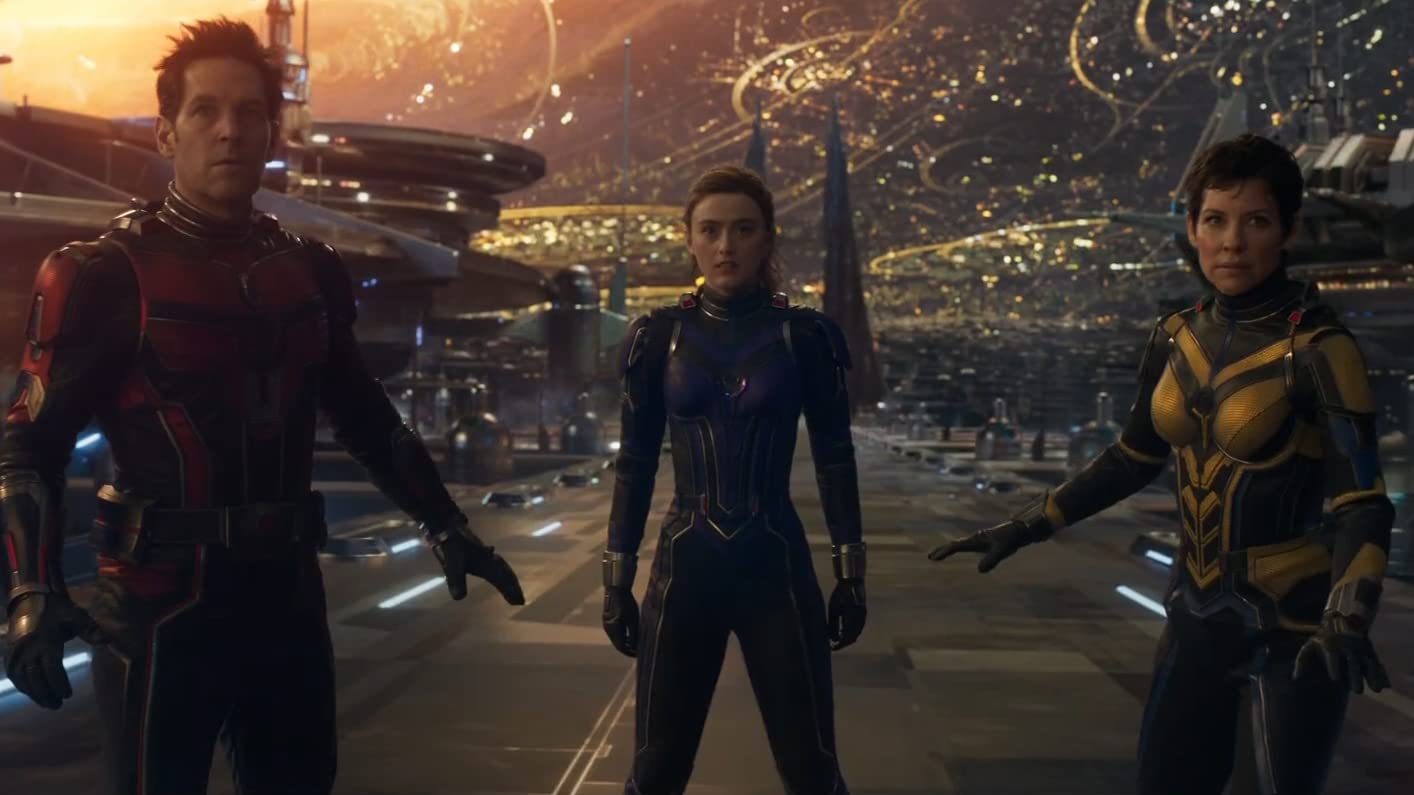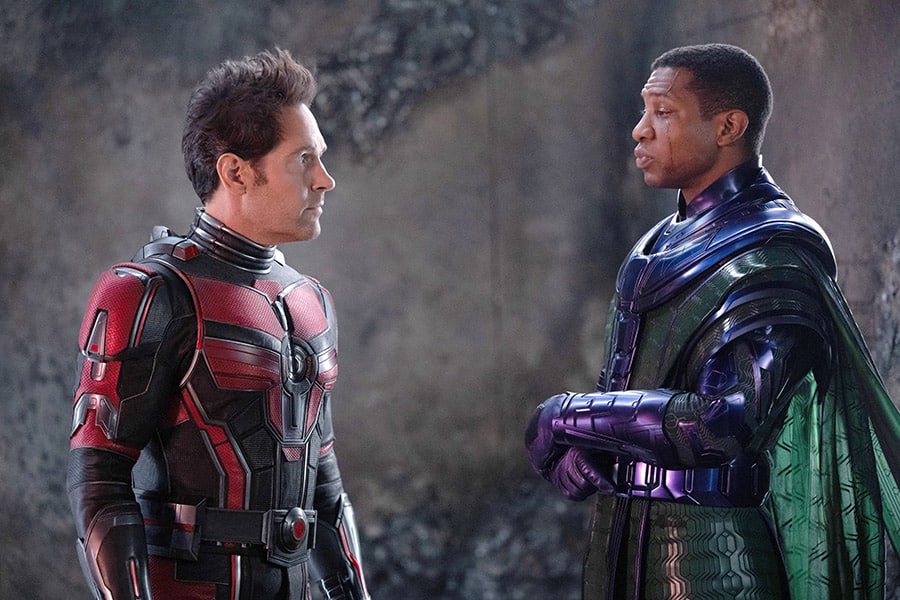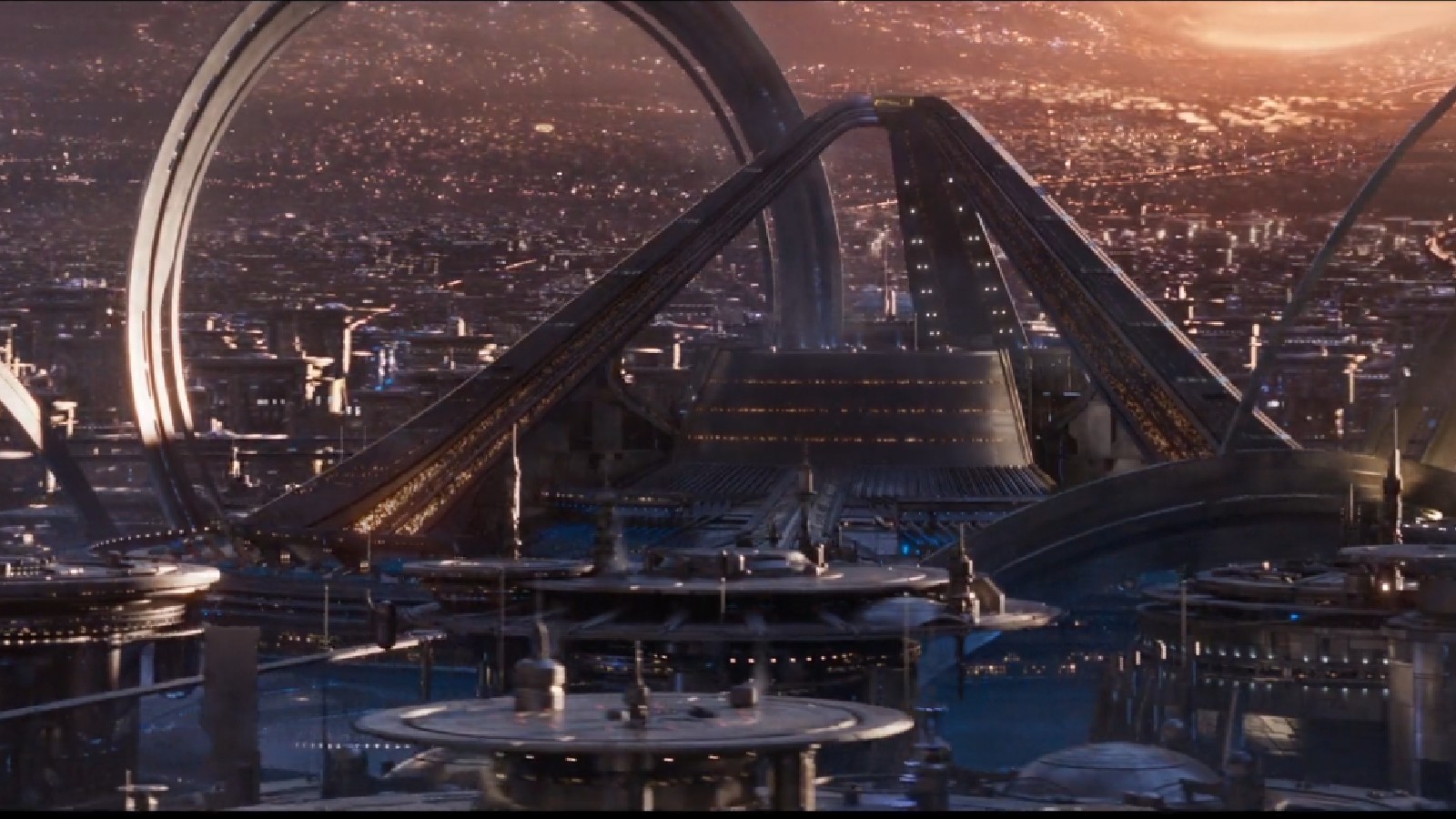
Ant-Man and the Wasp: Quantumania review: Much ado about nothing
- Post By Jan
- June 11, 2023
Another Marvel film proves that the once-beloved franchise lost its ways and feels like a mess, which fails to make a coherent and noteworthy whole. Read our review.
Words by Jan Tracz
Marvel’s Cinematic Universe (MCU) is a testament to the comic book’s sheer force of uniting its fans all over the world. Although Martin Scorsese discredited the franchise’s substantial influence on saving the modern cinema, only the most ignorant sceptics do not acknowledge the series’ impact on the audience and, as a consequence, Box Office Charts. You might don’t like Marvel’s premise or even hate it, but you won’t escape from its pop cultural snowball effect.
While the previous two Ant-Mans were rather cameral and low-key heist/family movies (which is good, it was a refreshing form of escape from overblown action and the universe’s threads), the third instalment of this trilogy hits more spectacular strings. It starts like another Marvel film – after the five-minute introduction (we learn that Scott Lang, played by Paul Rudd, lives a satisfying life as a fulfilled and slightly boastful superhero), the newest Ant-Man hastily gets cracking. Scott’s gang (including Michael Douglas, Michael Pfeiffer and Evangeline Lily) are sucked by Cassie’s device (Scott’s daughter, played by Kathryn Newton) to the perilous place called Quantum Realm.

Ant-Man and the Wasp: Quantumania (2023, Disney)
Here, they meet the realm’s ominous emperor called Kang the Conqueror (Jonathan Majors), who was teased in Loki’s first season, so watch it first (if you haven’t yet). The film pictures him as another ultimate thread for the MCU’s world, who is willing to go beyond any borders to achieve his menacing goals (even though the most “cruel” thing he does here is holding Cassie captive in his “castle”). Ultimately, Kang is another mediocre Marvel villain, who will probably be forgotten, although he is already announced to be Thanos’ spiritual successor (whom he is, with his calm manner and eerie predictions). This is why it might be interesting to see if Marvel will try to improve his villainy in the future episodes.
All of our heroes are constantly omniscient and rectitudinous, so it’s difficult to expect that they will learn anything during their time in Quantum Realm. With no incremental character development, no time and space for our characters to, at least once in a while, discover some new truths, and no dramaturgy related to the circumstances, the viewer quickly becomes non-invested in the film’s new promise of how another villain is about to destroy everything we love. There is even no substance, as the script tends to have a habit of breaking into a moralizing fairytale, which is, presumably, Ant-Man’s most irritating flaw. Marvel still attempts to make everything darker (so both parents and kids will appreciate their films), but they are somewhat scared of killing off fan-favourite characters to make the whole thing more dramatic, or to underline Kang’s superior potential and innate evilness.

Ant-Man and the Wasp: Quantumania (2023, Disney)
Thus, such missteps are not redeemed by the film’s flat dramaturgy: once again, Marvel film follows a path of another save-the-world-or-let-it-be-destroyed while the threat is encapsulated in Kang’s few populist sentences, so one does not necessarily know what is going on. We learn that something might happen if Scott Land and his team won’t be able to stop Kang from leaving Quantum Realm, but the dialogue’s nitty-gritty is exchanged for some mysterious prattle (which immediately feels like a tremendous understatement, as our interest loses its clash with confusion). Something can happen and we are supposed to take cues from Kang’s pathetic soliloquies, that’s for sure, yet we no longer care.
Most of the Marvel films visually elevated the superhero genre, so the audience did not have to care about any other aspects of those vibrant and dynamic blockbusters. Yet, Ant-Man and the Wasp: Quantumania doesn’t quite match any of our expectations. Elements of both plot and CGI don’t reach anything which was (earlier) promised by the film’s producers, so the screening evokes only disappointment. On top of that, Quantum Realm (which could have been anything) reminds us of another Star Wars-like city/planet, then a bold and created-from-scratch world. There is no ingenuity, no effort to apply something organic and, ultimately, no honest desire to surprise Marvel fans with something shockingly impressive.

Ant-Man and the Wasp: Quantumania (2023, Disney)
This echoes the words of famous Polish film critic, Zygmunt Kałużyński, who, with his well-known tongue-in-cheek style, couldn’t believe that in Star Wars prequels, “George Lucas, who could have done – literally – everything, still chose to introduce cloning, one of the most frequently-used leitmotifs in science-fiction.” Newest Ant-Man is a similar case: Marvel’s screenwriters had only one job – to entertain its fans. However, they still failed to execute their goal properly, as they chose to implement some cheap and trite inspirations.
Predictions state that there is still a big future for Marvel’s Avengers on the big screen, but even Douglas, who recently received his lifetime award during the Cannes Film Festival, and Pfeiffer couldn’t save this tired franchise. Our approach towards superhero movies has always been contingent and Marvel still got people who can prove their screenwriting prowess, but for now, we all have to quail – MCU’s future is extremely endangered: in Ant-Man, even one of the film’s fundaments isn’t beyond reproach.


